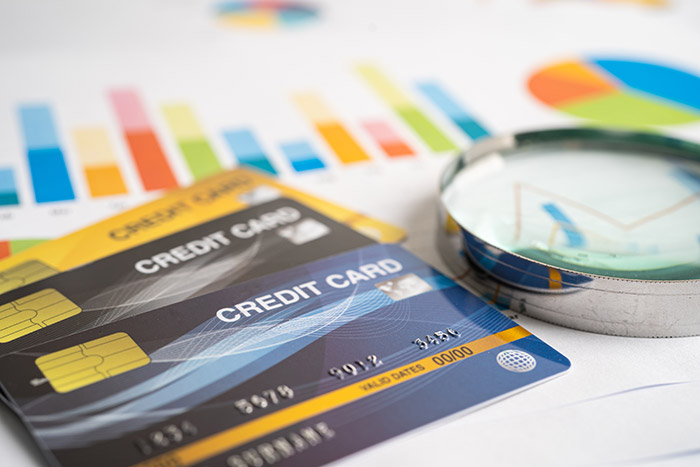Your credit score is a crucial factor in your financial health. A good score can open doors to better loan approvals, lower interest rates, and increased financial opportunities, while a poor score can make borrowing more expensive and stressful. Whether you’re planning to buy a home, secure a car loan, or simply want to improve your financial standing, raising your credit score quickly is possible with the right strategies. In this guide, we’ll explore actionable tips to help you boost your credit fast, avoid common pitfalls, and enjoy the benefits of a strong credit profile.
Why a Good Credit Score Matters
Your credit score is a three-digit number that lenders use to evaluate your creditworthiness. It impacts:
- Loan Approvals: Higher scores make it easier to qualify for loans and credit cards.
- Interest Rates: A good score often leads to lower rates, saving you money over time.
- Financial Health: A strong score demonstrates responsible financial behavior, which can affect everything from renting an apartment to securing a job in some industries.
Understanding its importance is the first step toward taking control of your credit.
Proven Tips to Raise Your Credit Score Quickly
A. Pay Down Credit Card Balances
One of the fastest ways to improve your credit score is to lower your credit utilization rate, which measures the percentage of your available credit in use. Aim to keep this rate below 30%, and for the best results, under 10%. Start by paying down high-interest balances first to free up more credit.
Pro Tip: Make multiple payments throughout the month to keep your balance low at all times.
B. Correct Errors on Your Credit Report
Errors on your credit report can drag down your score unfairly. Request free copies of your credit report from all three major bureaus—Experian, Equifax, and TransUnion—and review them carefully. Dispute any inaccuracies, such as incorrect account balances, late payments, or accounts that aren’t yours.
How to Dispute: File disputes online through the credit bureau’s website, providing documentation to support your claim.
C. Avoid Late Payments
Payment history is the most significant factor in your credit score, accounting for 35% of the total. Even one missed payment can significantly impact your score. Set up automatic payments or reminders to ensure you never miss due dates.
Quick Fix: If you’ve recently missed a payment, contact your creditor to see if they’ll waive the late fee or avoid reporting it to the bureaus.
D. Increase Your Credit Limits
If your utilization rate is high, consider requesting a credit limit increase from your card issuer. A higher limit reduces your utilization rate without requiring you to pay down balances immediately.
Caution: Avoid this step if you’re tempted to spend more after receiving a higher limit.
E. Become an Authorized User
Ask a trusted family member or friend with a high credit limit and good payment history to add you as an authorized user on their credit card. This can boost your score by improving your credit utilization and adding positive payment history to your report.
Key Tip: Ensure the primary cardholder pays their bills on time, as their activity will affect your score.
F. Use Credit-Building Tools
Services like Experian Boost allow you to add positive payment history for utilities, streaming services, and other bills that aren’t typically reported. These tools can provide a quick score increase without additional credit applications.
Common Credit Score Pitfalls to Avoid
Improving your credit score requires avoiding habits that can counteract your efforts. Here are some common mistakes to steer clear of:
- Closing Old Accounts: Length of credit history matters, so keep older accounts open even if you’re not actively using them.
- Opening Too Many New Accounts: Each hard inquiry temporarily lowers your score, and multiple applications in a short time can signal financial instability.
- Maxing Out Cards: High balances hurt your utilization rate and signal potential financial strain.
How Long Does It Take to See Results?
Improving your credit score isn’t an overnight process, but certain actions can yield faster results:
- Within 30 Days: Correcting errors, paying down balances, or becoming an authorized user can show immediate improvements.
- 3 to 6 Months: Consistent on-time payments and lower utilization will result in steady score increases.
- Long Term: Building a strong credit history requires years of responsible behavior, but the rewards are well worth the effort.
The Benefits of a Higher Credit Score
Once you improve your credit score, you’ll enjoy several advantages:
- Lower Interest Rates: Save thousands over the life of loans and credit card balances.
- Higher Credit Limits: Access more funds for emergencies or large purchases.
- Better Loan Approvals: Qualify for premium credit cards, mortgages, and auto loans with ease.
A good credit score empowers you to take control of your financial future.
Improving your credit score is one of the most impactful steps you can take for your financial health. By paying down balances, correcting errors, and avoiding common pitfalls, you can boost your credit quickly and unlock better financial opportunities. Remember, consistency is key—adopting good credit habits today will benefit you for years to come.
Start implementing these tips now to raise your credit score and enjoy the financial flexibility and peace of mind that come with it.



